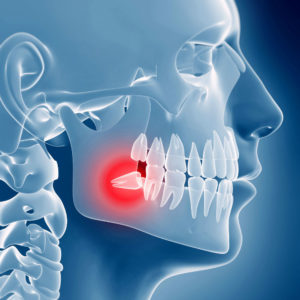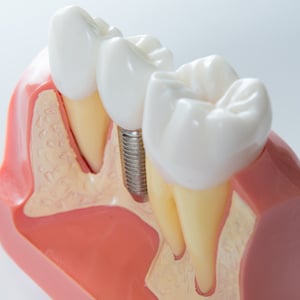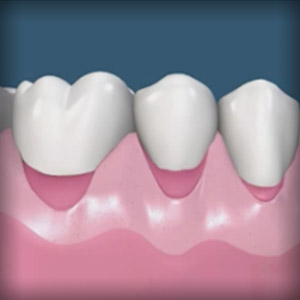Wisdom Tooth Surgery

A wisdom tooth is also known as the third molar. In general, wisdom teeth will grow out of the gums between the age of 18 to 21. If the wisdom teeth erupt out straight, they do not need to be removed. However, these wisdom teeth may not grow out straight at all times. When they are not straight, wisdom teeth can cause problems like pain and infection.
Removal of these wisdom teeth can be done by specialists to ensure safe and pain-free removal.
Wisdom tooth surgery is a procedure whereby the dentist will perform a minor surgical procedure to safely remove a wisdom tooth that is not growing out straight. This is a minor but delicate procedure.
Wisdom tooth surgeries are usually done under local anaesthesia. To ensure a pain-free and anxiety-free surgery, the procedure can be done under intra-venous sedation. During intra-venous sedation, a qualified specialist will perform this sedation and patients will be sleeping throughout the procedure.
Research has shown that wisdom tooth surgery is a very safe and predictable procedure. With proper examination and x-rays analysis, dentists will be able to predictably and safely perform wisdom tooth surgical procedures.
Common discomforts lasting one to two days include mild pain, bleeding and swelling.
There is a nerve that runs in the lower jaw bone and this nerve can be close to the roots of the wisdom tooth. If the nerve is compressed during the surgery, patients will experience some numbness to the lower lip. Hence, it is important that dentists perform careful surgical procedures to ensure a safe surgery.
Bone Grafting

Bone can be missing from natural teeth and bone grafting can be done to regenerate the bone around natural teeth to increase the stability of these teeth.
Also, implant dentistry is a highly specialised field for replacing missing teeth with titanium fixtures placed in the jawbone. These fixtures have to be placed in sufficient bone for them to be successful.
Specialists can grow and regenerate bone for these purposes.
Bone grafting is a procedure whereby the specialist will perform a minor procedure to place grafting material under the gums. This is a minor but delicate procedure. Specialists have to undergo intensive local and overseas training to be able to perform bone grafting procedure.
Grafting materials can be obtained from patient's own jaw, bone material that has been sterilised or synthetic bone.
Research has shown that bone grafting is a very safe and predictable procedure. With proper examination and x-rays analysis, specialists will be able to predictably and safely perform bone grafting procedures.
The bone that is regenerated has been shown to be no different from patient's original bone. There are many long-term research reported to demonstrate that this newly regenerated bone can last for decades.
Gum Grafting

Gum around teeth can recede due to gum disease or hard brushing. Gum grafting can be done to regenerate the gum around teeth to increase the stability of these teeth.
Gum specialists (Periodontists) are specially trained dentists who can grow and regenerate gums for these purposes.
Gum grafting is a procedure whereby the specialist will perform a minor procedure to place grafting material to grow and regenerate the gums.
This is a minor but delicate procedure. Specialists have to undergo intensive local and overseas training to be able to perform gum grafting procedures.
Grafting materials can be obtained from patient's own gums, gum material that has been sterilized or synthetic gum.
Research has shown that gum grafting is a very safe and predictable procedure. With proper examination and x-rays analysis, specialists will be able to predictably and safely perform gum grafting procedures.
The gum that is regenerated has been shown to be no different from patient's original gum.
There are many long-term research reported to demonstrate that this newly regenerated gum can last for decades.